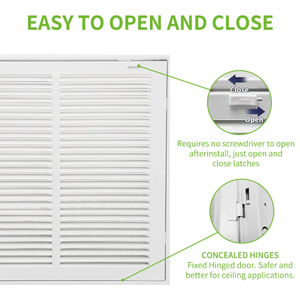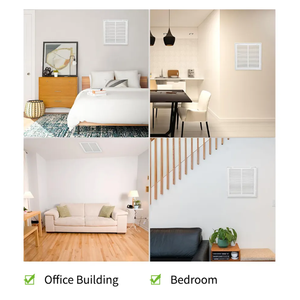Different Types of Air Cleaners: An Overview
Air cleaners are vital devices designed to improve indoor air quality by filtering out contaminants and pollutants. With various types available on the market, understanding each type is crucial for selecting the right solution for your specific environment. Whether you're dealing with allergens, odors, or smoke, there is a type of air cleaner tailored to meet those needs. Below, we explore the different types of air cleaners, their unique features, and applications to help you make an informed decision.
Types of Air Cleaners
Different types of air cleaners utilize various technologies to purify the air. Here are some of the most common types:
- HEPA Air Cleaners:
- High-Efficiency Particulate Air (HEPA) filters can capture 99.97% of dust and allergens as small as 0.3 microns.
- Ideal for individuals with allergies or asthma.
- Activated Carbon Air Cleaners:
- Utilize activated carbon filters to absorb odors, smoke, and chemicals from the air.
- Great for households with smoking, cooking, or pets.
- Ionic Air Cleaners:
- Release negative ions that bind with airborne particles, causing them to settle out of the air.
- Compact design and low maintenance, but may produce ozone.
- UV Air Cleaners:
- Use ultraviolet light to kill bacteria, viruses, and mold present in the air.
- Effective for improving overall hygiene in places like hospitals or clinics.
Function and Feature of Air Cleaners
The functionality and features of different types of air cleaners vary widely. Regardless of type, all air cleaners serve the fundamental purpose of purifying indoor air. Key features to note include:
- Filtration Efficiency:
- Higher efficiency means better air quality; HEPA filters are the gold standard.
- Noiseless Operation:
- Most modern air cleaners operate quietly, making them suitable for bedroom or office settings.
- CADR Rating (Clean Air Delivery Rate):
- A higher CADR indicates a faster ability to clean the air in a given space, enhancing efficiency.
- Smart Technology:
- Some air cleaners come with Wi-Fi connectivity, allowing remote control and monitoring via smartphone apps.
Applications of Different Types of Air Cleaners
The application of air cleaners varies based on their type and effectiveness in addressing specific contaminants:
- Residential Use:
- HEPA filters are commonly used in homes to reduce allergens like pollen, pet dander, and mold spores.
- Commercial Use:
- Activated carbon air cleaners are popular in restaurants and offices for odor control.
- Healthcare Settings:
- UV air cleaners are frequently employed in hospitals to reduce airborne pathogens.
- Industrial Use:
- Ionic air cleaners are often utilized in manufacturing facilities to maintain a clean working environment.
Advantages of Using Air Cleaners
The advantages of incorporating different types of air cleaners into your environment include:
- Health Benefits:
- Reduction in respiratory issues caused by airborne pollutants and allergens.
- Improved Sleep:
- Clean air can enhance overall sleep quality, allowing for deeper and more restorative rest.
- Odor Elimination:
- Activated carbon filters effectively remove lingering odors, making your space more pleasant.
- Long-term Cost Saving:
- Reduced healthcare costs and improved air quality can lead to long-term savings.






















 Ready to Ship
Ready to Ship

























